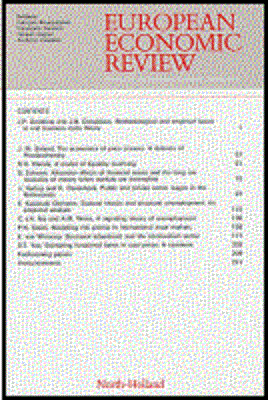The labor market return to academic fraud
Academic fraud by undergraduate students is pervasive, but should it be taken seriously as an economic problem? Our research suggests so. Using a unique data set from the Caucasus, we estimate a large positive effect of academic fraud on the probability of employment. Econometrically, we deal with endogenous selection into academic fraud and possible measurement error in the reporting of academic fraud using partial identification techniques. The findings demonstrate that incentives to commit academic fraud are strong and point towards the potentially damaging consequences of academic fraud in broader settings.




